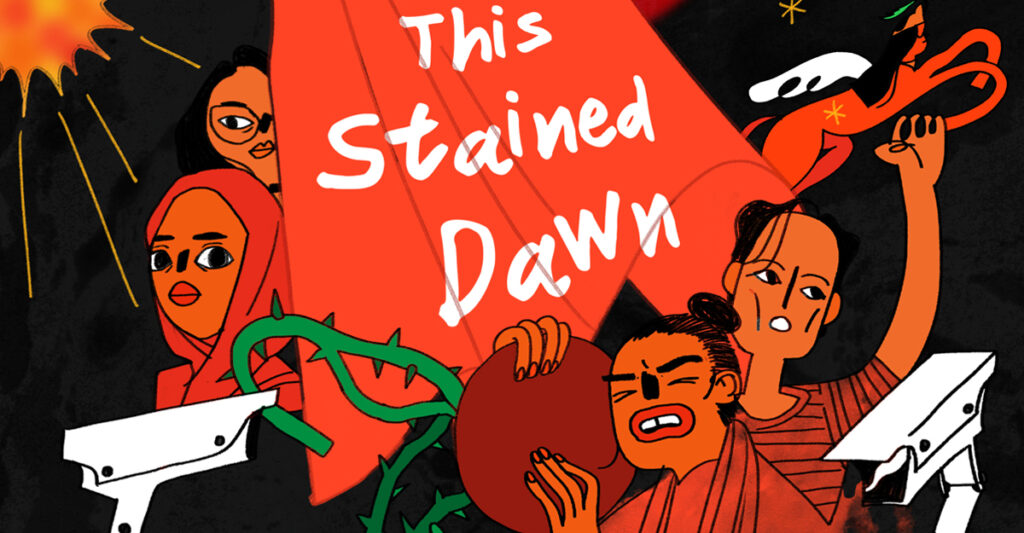Every year from 25 November to 10 December, activists around the world mark the 16 Days of Activism against Gender-Based Violence – a global campaign to raise awareness of the issue of gender-based violence (GBV) and to call for the elimination of violence against women and girls. For many women’s movements, this is an important event in the calendar, allowing activists to raise their voices in solidarity, to learn from each other and to highlight their work.
There is an increase in backlash against women’s rights around the world, and anti-feminism and attacks against gender justice activists are on the rise. In recognition of this and the relentless work of grassroots activists, this year the 16 Days campaign is calling for us all to #PushForward against the pushback.
In this current context, it is more important that ever to gain a better understanding of backlash, as well as the strategies and mechanisms that work in the struggle for gender justice. SuPWR aims to contribute to this by undertaking research in collaboration with women’s struggles in South Asia. privileging members of women’s movements’ own understandings of power and struggles.
Understanding backlash
Backlash against women and their struggles is increasingly vigorous – there has been a rise in attacks on women’s rights, a backlash that appears to be triggered by perceived or actual gains made by women. The backlash is also possibly revitalised by the rise of right-wing populist leaders with openly misogynist views, and with conservative agendas playing out in elections to mobilise larger vote banks. Together, these appear to have revalorised traditional ideals of masculinity and femininity and reinforced gender-biased religious doctrines.
Add to this new modes of extraction by structures of global capitalism that reinforce the exploitation of women’s paid and unpaid labour; and demographic shifts and urbanisation that have created new patriarchal constraints for women. Brought together, these contextual conditions appear to have created spaces that are more permissive of threats to and vilification of women’s rights activists and gender-based violence.
Women’s struggles in South Asia
Women have not just been victims; women’s struggles are being galvanised to counter this backlash, heralding new forms, spaces and arenas of contention. SuPWR seeks to investigate when, how and why South Asian women’s power struggles have withstood backlash and succeeded in holding on to and consolidating their gains in power. We ask, what works to defend women’s rights, and what strategies have been deployed by women in South Asia?
Autonomous women’s movements have been vital to advancing gender equality in the past century, but hard-won gains have stalled or reversed. In the past generation, South Asia’s almost one billion women have made substantive gains in human development and employment, yet continue to experience high rates of malnutrition, child marriage, and violence, while shouldering a disproportionate share of unpaid care work. Despite gains in local political power, South Asian women are still marginalized in national governance and politics.
To cover struggles across all these areas, the SuPWR programme studies women’s struggles in South Asia in four domains – the family, community, market, and the state. Struggles are categorised by the domain in which we expect any success to accrue – so that a struggle for laws that protect women against domestic abuse, even when targeted at amending or creating legal provisions, lies in the domain of the family.
We have brought together 16 struggles across South Asia – four in each domain, and four each across Bangladesh, India, Nepal, and Pakistan – that have not only made significant gains in their struggle for women’s rights, but are actively dealing with ongoing backlash against which they must defend and consolidate these gains and push them further.
These struggles seek to secure recognition of, and address, a range of gendered violences and harms, and include movements:
- against child marriage (Girls Rights Forum, Nepal; Girls not Brides Bangladesh; Anti-Child Marriage coalition, Pakistan)
- against workplace abuse, exploitation and discrimination (Jagriti Mahila Maha Sangh, Nepal; Bangladesh Garment Workers Solidarity; Home Based Women Workers, Pakistan; Community for Social Change and Development, India)
- against caste, class and ethnicity-based stigma and violences (Bharatiya Muslim Mahila Andolan, India; Hazara Women’s Movement, Pakistan; Nepal Mahila Ekta Samaj)
- against exclusion from access to resources and political participation (Kotra Adivasi Vikas Manch, India; Nepal Mahila Ekta Samaj)
- working expressly on addressing sexual and gender-based violence and expanding women’s agency and autonomy over their bodies (Rape Law Reform Coalition, Bangladesh; National Alliance of Human Rights Defenders, Nepal; Aurat March, Pakistan; and Naripokkho, Bangladesh).
Standing in solidarity
Through our research, SuPWR is aiming to unravel the similarities and differences in processes and strategies used by these different women’s movements to retain power in the face of backlash. This is of the utmost importance, given the shrinking of civic space, to ensure activism is successful.
Over the 16 Days of activism, we are sharing our reflections and standing in solidarity with the women’s struggles we are working with by amplifying their action – follow our 16 Days activity on Twitter.
